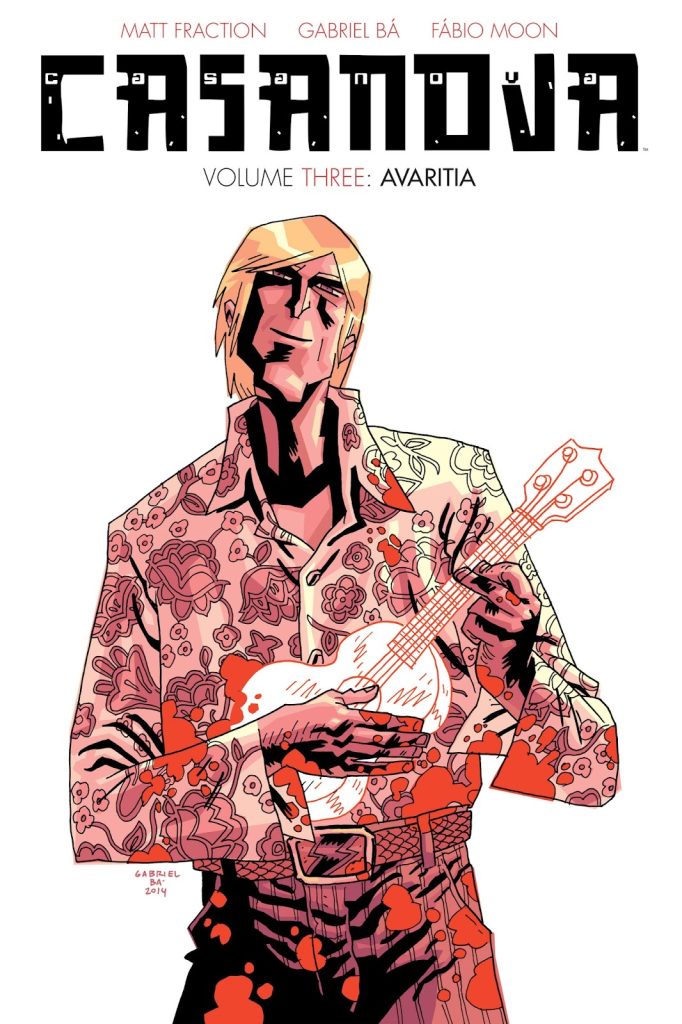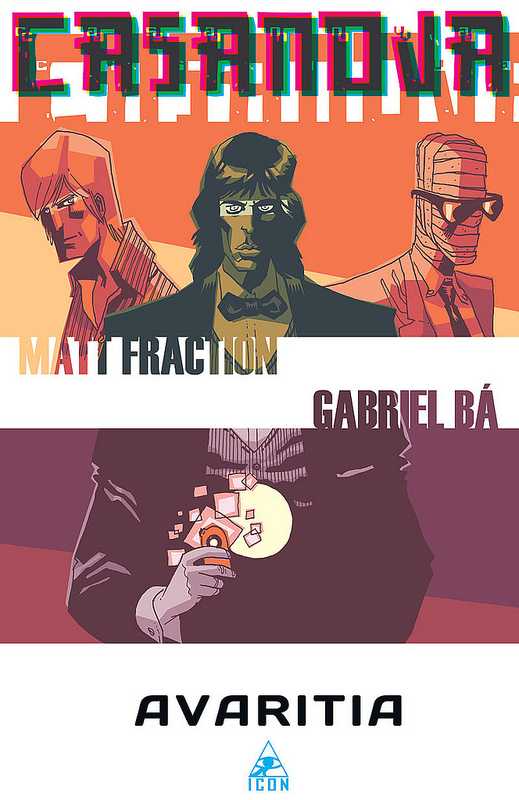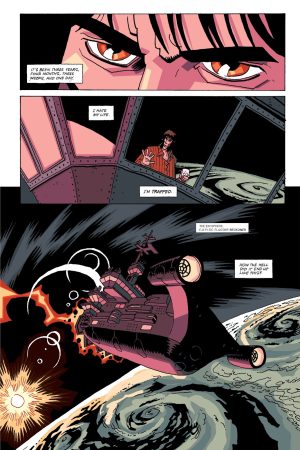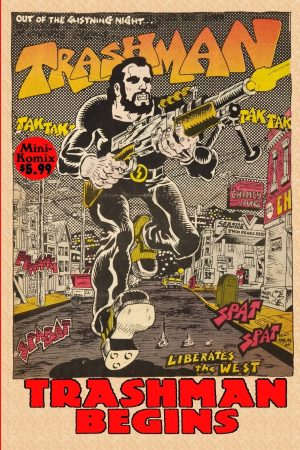Review by Karl Verhoven
At one time Casanova Quinn loved his life and proclaimed it to the world. Now it’s different. Time has moved on since Gula ended, and Quinn is now back working for his father and E.M.P.I.R.E. once again. Instead of robbing things, he’s wiping out entire alternate timelines, and that comes with a heavy mental cost. “When did all this turn out to be my fault?” asks Casanova multiple times as he flits from one alternate Earth to the next, eliminating them all, “this isn’t what I wanted to be”.
At first the downbeat tone is all in the narration, as the pages have Matt Fraction and Gabriel Bá showing Casanova in action, and it’s much the same kinetic rush as has occupied the previous two books. The fantastic is presented as everyday, with Bá’s expressive cartooning every bit as joyful as it was the first time round. The reasoning behind the missions is to locate the alternate universe in which a criminal genius manifests, so Casanova is essentially committing the same murder over and over again, except in different circumstances. That sort of tautological conundrum ought to be commonplace for the seasoned Casanova reader.
It’s clever writing on Fraction’s part because although the wonder is still present and correct, the horror of what Casanova is carrying out eventually seeps through the exuberant action. So far during the series there’s been little correlation between cause and effect. Indeed, ‘random’ could be the series mantra, but in Avaritia Fraction pulls a lot together and what’s seemed random in previous volumes suddenly starts to make sense, not least the actions of one Xeno. He’s more interesting for being revealed, and credit to Fraction for not taking the obvious route of his being Casanova. He’s surrounded himself with people who have a grudge against Casanova, yet what are his real intentions?
That never becomes entirely clear as the final chapters return to the insanity of the first volume, with characters spouting technobabble, some even admitting they don’t understand it, and we have to take their word for it that everything is headed hellwards in a handbasket. It doesn’t help that Fraction’s experimenting with dialogue throughout. The blank word balloons are self-explanatory in context, but characters speaking as if through a mouthful of mashed swede is indulgence, as are scripted stage instructions. It’s different, but it’s smug, not smart. The explanations in the back are of no comfort.
However, these are minor irritations. As has been the case from the start, Casanova is an intelligent headrush of action separated by emotional turmoil that thrills to the final page. The optimal choice is the 2015 hardcover edition complete with Fraction’s whittering in the back pages.






